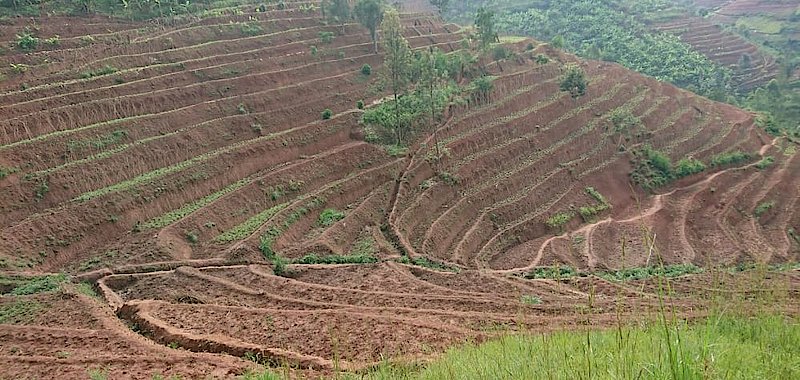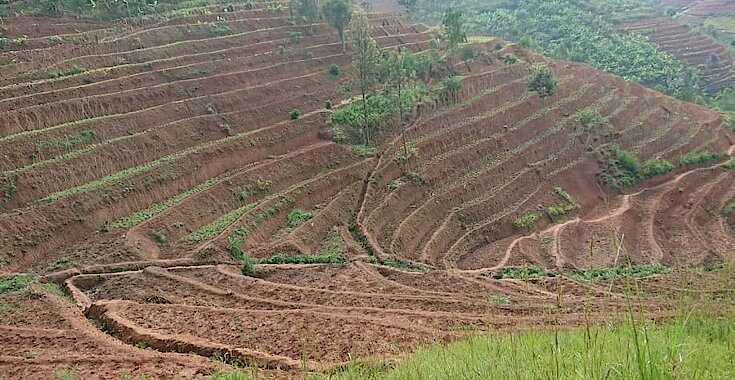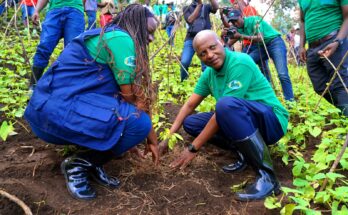Farmers in various parts of the North-West Rwanda are required to cultivate and maintain the soil because it is what keeps the soil healthy. Farmers in these areas that have recently been affected by disasters believe that the disaster is taking its toll, including the role of environmentalists.
Most of the people living in the North West depend on agriculture and animal husbandry and their daily work is also the main pillar of their economy.
However, some farmers believe that it has started to decline due to climate change, soil erosion, and other factors including the vulnerability of the area to natural disasters.
One farmer said: “You see down there the fields are gone, the trees are also coming down and they are falling every now and then!”
Those who closely monitor the economy of the region seem to have seen it first hand. Andrew RUCYAHANA Mpuwe; the director of economic development in the Musanze region, encourages farmers to work professionally as a stable job for many, and protect their farms from damage by preserving the environment because of the nature of this area which is considered a problem.
He said: “The first is to be professional. The second is to show that in these areas of ours, especially those with mountains, we have a very serious problem of water pollution, Disasters are coming(…)we must cultivate so that our fields are protected from damage. We would put in anti-erosives, put in trees where possible, plant grasses that hold the soil….”
Residents of the north-west feel the crisis of the disaster without any further testimony because now most of them cannot recover from the losses of the attackers.
MUKESHIMANA Esperance; A beet farmer in the Bugeshi sector of Rubavu District is one of the victims of these losses. He told Isango Star that uninformed farmers contribute to disaster preparedness, often due to ignorance of what is hidden from small farmers, which is revealed to senior farmers.
He said, “They are there in the potato plant and they immediately put more, they put in about three times. You understand that it is necessary for the land to rotate and alternate crops. so even those little ones are told the beauty of conservation, the training goes to them…”

I will protect Isaac; a potato farmer from the Kinigi sector and a farmer, who is also a farmer, said: “The farmer is involved, but mainly with limited information. Now, because there is no information to preserve and leave the environment, I would go because it was planted, everything will be destroyed by those who hit there, then the rain and the rain will destroy it.”
Besides that, representatives of small farmers, non-governmental organizations and agricultural cooperatives in 20 Rwanda met in Musanze district to be presented with research on land as a solution to protect the land on which their economy depends.
MUYOBOKE Rachel; the leader of a non-governmental organization that aims to speak for small farmers [APPE EASFF Rwanda], says that if farmers do not protect the environment, the land will continue to deteriorate.
He asked those who stopped the small farmers to share this knowledge with them. That’s “why we should take care of the environment more than we take care of our crops?”
All over the country, those who do agriculture as their daily work, in some places show that the production has decreased, often due to the fact that the land has burned, in other places it has been washed away by disasters, so that apart from the market farmers, the profit has been reduced in a visible way.
In addition to this, there are also areas that used to be sacred, but now they are harvesting in pits, due to climate change that has also affected the land.
All farmers are now being asked to practice professional farming in order to avoid future disasters, as it has become clear that they are also involved.
Reporter: Bakundukize Emmanuel




